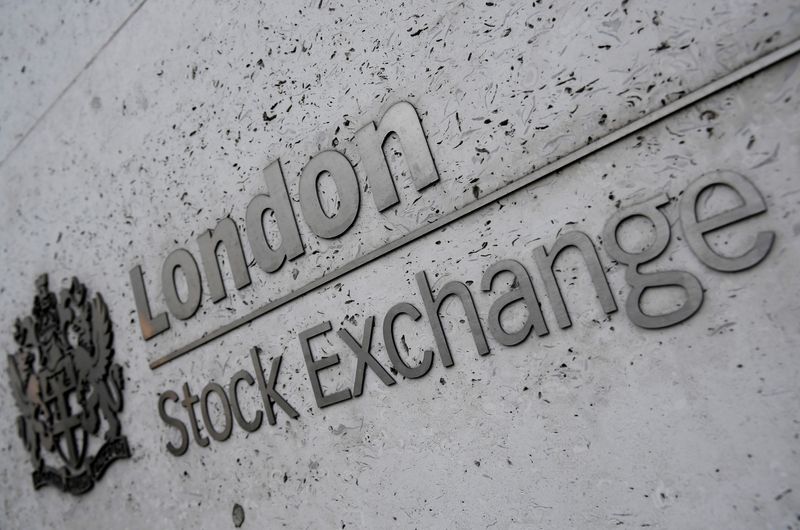By Marc Jones
LONDON (Reuters) - A sharp rise in the number of coronavirus deaths and infections unnerved world markets on Thursday, as traders halted the rally in stocks and retreated to the safety of government bonds and gold.
Europe's main markets followed Asia into red with London FTSE (FTSE), Frankfurt's DAX (GDAXI) and Paris' CAC 40 (FCHI) extending losses to 1% to 1.5%, as the euro (EUR=) also slumped to near a three-year low against the dollar after a torrid couple of weeks.
China reported 254 new deaths, double the previous day's toll and the fastest rise since the pathogen was identified in December.
Hubei province, where the virus is believed to have originated, accounted for 242 of them and confirmed 14,840 new cases, though it was amplified significantly by a switch to using quicker computerised tomography (CT) scans - which reveal lung infections - to confirm the virus.
Excluding cases declared using the new methods, the number of new Hubei cases rose by only 1,508, the official data showed, though for markets, the net result was more uncertainty about how long problems are likely to persist.
AXA Investment Management's chief economist Gilles Moec said the impact of virus could be part of a "perfect storm" for Europe that hurts the economy for months and then gets compounded by a heated trade battle with the United States.
"We started with the premise that this virus would be worse than SARS and that has now become consensus," Moec said.
"So attention turns to who is hit the hardest and Europe is among the usual suspects and Germany in particular, given China is its biggest export market. So the reaction of the exchange rate is probably rational," he added.
The euro bowed as low as $1.0864 (EUR=) and also crumpled to a four-and-a-half-year low against the Swiss franc (EURCHF=) as wary European FX dealers headed to their usual safe spaces also wondering whether ECB rate cuts might be back in play.
Japan's yen strengthened past 110 per dollar
MSCI's broadest index of Asia-Pacific shares outside Japan (MIAPJ0000PUS) had snapped two days of 1% gains to end 0.1% lower as most markets across the region posted modest declines.
"There is no panic on this," said Frank Benzimra, head of Asia equity strategy at Societe Generale (PA:SOGN) in Hong Kong, since the dramatic rise seems so far to be contained to Hubei.
The new methodology effectively lowers the bar for classifying new infections, contributing to the spike in cases. Chinese officials said the method is only being used in Hubei, though it was expected to be gradually extended to other regions.
The virus has also cast a shadow over life in Asia's financial markets, with Benzimra himself logged in from home and speaking to clients by phone as meetings are increasingly cancelled, even in cities not subject to quarantine.
"Most markets were recouping their losses so that has offered maybe some excuse to sell Asian markets," he said. "But there is not much energy in this."
Japan's Nikkei (N225) fell 0.1%. Australia's ASX/S&P 200 index (AXJO) retreated from a record high. The Shanghai Composite (SSEC) fell 0.6% and Hong Kong's Hang Seng (HSI) was 0.3% softer. Gold rose 0.6%
FORECASTING GLOOM
There was more drama for Brexit-bound British markets too.
The sudden resignation of the country's finance minister Sajid Javid caused a jump in both sterling and British government bond yields amid bets his replacement, the 39 year-old Rishi Sunak, will beef up spending.
Javid's departure comes less than a month before he was due to deliver his first budget and after just 204 days made him the shortest-serving chancellor of the exchequer since 1970.
"I suspect he (Sunak) is likely to do whatever Boris Johnson tells him to do," said Nomura economist George Buckley. "I don't know what that means for the public finances and fiscal policy but I doubt it will mean tighter fiscal policy."
The main focus remained the coronavirus though. Markets had taken comfort from the World Health Organization's (WHO) emergency programme head describing the apparent slowdown in the epidemic's spread as "very reassuring".
Yet WHO chief Tedros Adhanom Ghebreyesus had also warned that it should be viewed with extreme caution. "This outbreak could still go in any direction," he said.
Even before the rise in cases, economists were turning more bearish on the likely hit to China's growth as factories idle and supply chains are upended.
Citi on Wednesday again downgraded its 2020 GDP forecast for China to 5.3%. The bank had forecast it to be 5.8% in its January outlook, before cutting it to 5.5% two weeks ago.
Morgan Stanley (NYSE:MS) believes a gradual, rather than sharp recovery is the most likely scenario. That all bodes ill for regional economies and has weighed on Asian currencies and commodities.
The Australian dollar

China's yuan was 0.1% weaker